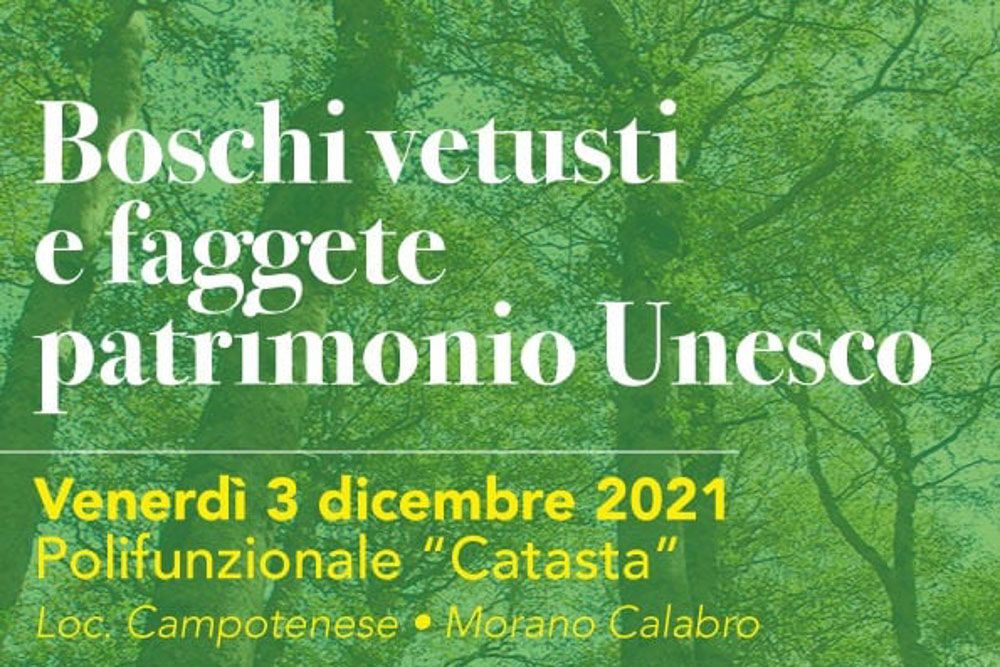Celebrations for the recognition obtained by the Pollinello beech forest within the Pollino National Park
On Friday, December 3, 2021, at the Catasta in Campotenese, Morano Calabro (CS), a day of study and celebration took place for the recent recognition that brought the Pollinello beech forest, located in the municipality of Castrovillari, into the network of UNESCO ancient beech forests last July. This new significant achievement of the Pollino National Park, which also includes the UNESCO heritage beech forest of Cozzo Ferriero in the municipality of Rotonda, was celebrated with a day dedicated to the environmental heritage discovered with the contribution of researchers from the University of Tuscia.
The event was enriched by the presence of numerous scholars from various Italian universities; an intense day of discussion to present the ‘results achieved’ by the network of southern parks, as emphasized by Domenico Pappaterra, president of the Pollino National Park. He noted that the choice to engage in research and the promotion of tree species in the Pollino has ‘reversed an approach that, in the 1960s, consolidated the wild exploitation of forests.’ He further emphasized that ‘today we have ensured the protection of the beech forests, and above all, as an organization, we are acquiring all the private properties in which the Calabrian pine trees are located to make them state property and prevent the illogical exploitation of our green heritage.’
Beech forests and woodlands represent today, especially in the central and southern Apennine ridge, ‘extraordinary natural treasures,’ as noted by Carlo Blasi, emeritus professor at La Sapienza University, who coordinated the technical discussions.
Antonio Maturani, Director-General of the natural heritage at the Ministry of the Environment (MiTE), reiterated the wealth of Italy’s forests, emphasizing the ‘cultural aspects of the landscape’ and the need to ‘preserve and protect’ the area with ‘remarkable biological diversity.’ This work will involve the parks and local institutions, who are called to be ‘guardians in the monitoring and control of such natural beauty,’ as reiterated by Pasquale Pace, the Environment Commissioner of the Municipality of Castrovillari, and Pasquale Maradei, Deputy Mayor of Morano.
The meeting was also attended by Nicolò De Bartolo, Mayor of Morano Calabro; Rocco Bruno, Mayor of Rotonda; Domenico Lo Polito, Mayor of Castrovillari; and Gianluca Gallo, the Regional Councillor for Agriculture of the Calabria Region.
